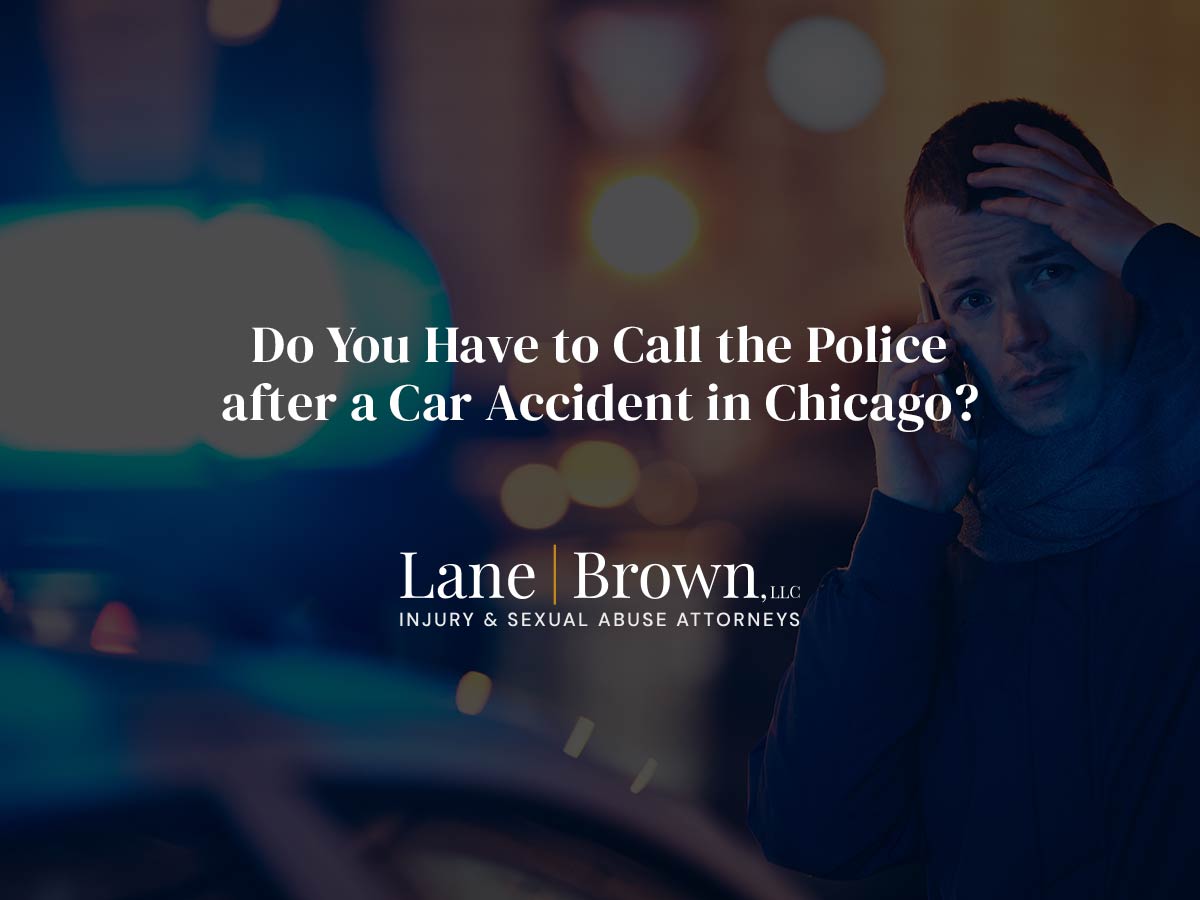When a car accident happens in Chicago, you may be unsure what to do. Depending on the severity of the collision, it can be unclear whether you’re required to call the police. If you know someone else is at fault for your car accident, however, calling the police can be beneficial, regardless of whether you’re required to.
Having a police report can serve as strong evidence if you file a lawsuit against the at-fault party to fight for a settlement for your damages. If you’re having questions about your car accident and whether you have grounds for a lawsuit, you can speak to a Chicago car accident lawyer from Lane Brown, LLC. Our team will investigate your accident and help move your claim in the right direction.
When You’re Required to Call the Police after a Chicago Car Accident
You’re required to call the police after a car accident in Chicago if the accident results in bodily injury, death, or $1,500 in property damage. Although this may seem like an easy law to follow, you may not initially know the value of the damage that has been done to your car.
To play it safe, you should call the police if you see any property damage after a car accident. Even if your car accident seems unsubstantial on the scene, you should file a report for your Chicago car accident after the fact. By giving the police information about your wreck, you’ll provide yourself with evidence if you end up in court.
How to File a Police Report for Your Chicago Car Accident
You must file your police report within ten days of your Chicago accident. If you don’t file a report and your accident resulted in bodily injury, death, or property damage over $1,500, you can be fined.
You can file your report by completing a motorist crash report with the Illinois Department of Transportation. This report will ask for specific information from your car accident, such as when and where the accident happened, who was involved, how it occurred, and detailed vehicle information about all drivers.
Proving Negligence against the Liable Party in Your Wreck
If you realize that you’ve experienced significant damage from your accident, such as medical expenses, property damage, or lost wages from missing work, you can sue the liable party by proving negligence. Your police report will come in handy as evidence in your case, but you may also need photographs and witness statements from the scene of the accident to support your claim.
Contact a Chicago Car Accident Attorney
By taking the rights steps at the beginning of your accident, you can maximize your settlement later on. Speaking to an experienced attorney as soon as your accident occurs will be helpful if you want to avoid making mistakes while pursuing compensation. To speak with a Chicago car accident lawyer from Lane Brown, LLC, call 312-332-1400 or fill out the contact form below to schedule a free consultation.

